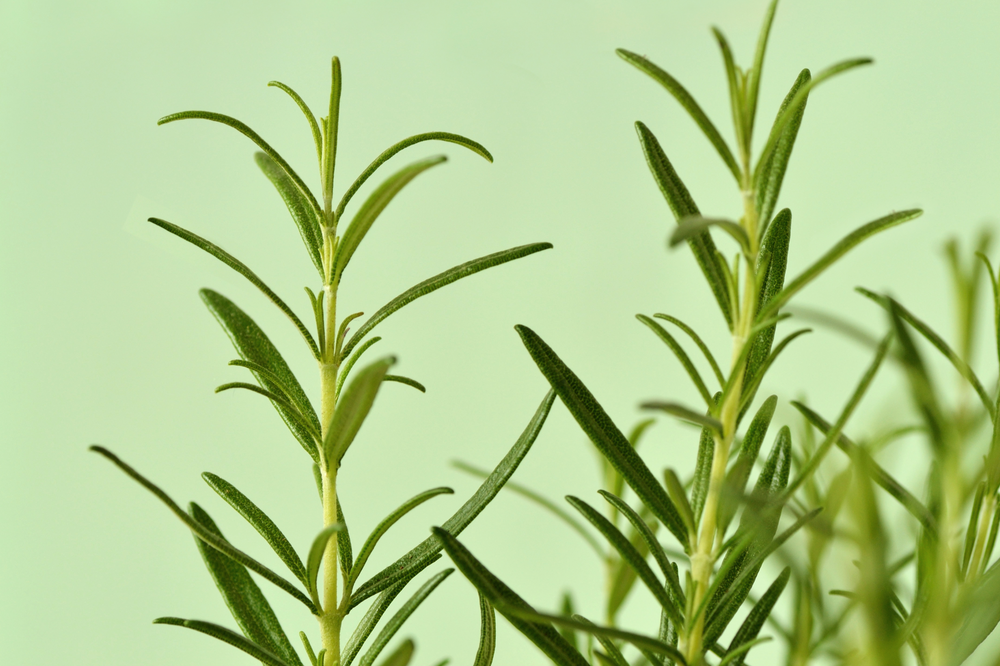Rosemary leaf extract is one of the active ingredients in Divi’s Scalp Serum. This incredible plant extract offers a wealth of scalp-enhancing benefits, not least its ability to promote growth and treat certain forms of hair loss.
If you want longer, thicker, healthier hair and are shortlisting must-have ingredients for your next scalp care purchase, rosemary leaf extract should be near the top of that list.
About Rosemary Leaf Extract
Rosemary is a perennial Mediterranean herb with a distinct peppery flavor and scent. Mediterranean cultures have used rosemary rinses, oils and extracts in hair growth-promoting treatments for hundreds of years.
Recently, the scientific community has sought to find out whether rosemary actually does promote hair growth. The results have been extremely positive, though the exact biological mechanisms behind rosemary’s growth-boosting effect are not yet fully understood.
Rosemary’s Therapeutic Properties
To explore how rosemary leaf extract may benefit your hair, we first need to examine its constituent compounds and their combined therapeutic properties.
The main chemical compounds in rosemary extract are α-Pinene, 1,8-cineole, camphor, rosmarinic acid, carnosic acid and borneol. These substances are present in both rosemary oil and rosemary leaf extract, albeit in different concentrations, and are known to have the following properties:
- Anti-inflammatory
- Antifungal
- Antibacterial
- Antioxidant
- Analgesic (pain relieving)
- Vasodilation (improving blood flow)
Rosemary leaf extract and rosemary oil offer roughly the same benefits where hair and scalp health is concerned. The main reason you’ll find rosemary leaf extract in hair and scalp care products more often than rosemary oil is that rosemary oil doesn’t always blend well with other ingredients.
Rosemary Stimulates Hair Growth
There’s been a whole lot of excitement around this humble plant in recent years – with good cause. Unlike many growth-promoting ingredients, rosemary’s ability to boost scalp health and promote hair growth is well-documented.
Improving Circulation
Boosting blood circulation in the scalp is one possible mechanism by which rosemary leaf extract stimulates hair growth. Though this effect hasn’t been observed during studies directly relating to hair growth, it has been demonstrated in one study featuring people who suffer from Raynaud’s Syndrome. This condition causes poor circulation in the hands and feet. During this study, rosemary was shown to improve circulation in these areas, possibly by stimulating the cells which line blood vessels (endothelial cells) and facilitating the movement of platelets.
Rosemary leaf extract may stimulate hair follicles and encourage hair to grow faster by improving circulation in the scalp. Vasodilators like rosemary can also minimize shedding by ensuring new hair is thick, healthy and well-anchored in the scalp.
Stimulating Nerve Function
According to the results of this study, hair and scalp care products containing rosemary leaf extract may be especially beneficial to people who suffer from limited hair growth due to damage to nerve endings in the scalp. The results show that a topical formulation containing rosemary oil was able to speed up tissue regeneration and rebuild nerve endings around hair follicles. This action is thought to result from rosemary’s carnosic acid content, as this compound is known to have nerve-stimulating properties.
Rosemary Leaf Extract to Treat Hair Loss
There is a great deal of evidence suggesting that serums, conditioners and shampoos containing rosemary oil or rosemary leaf extract can stimulate hair growth in people with relatively healthy scalps. There is also a growing body of research indicating rosemary may be able to treat hair loss and encourage new hair growth in people with androgenic alopecia.
The mechanisms by which rosemary can treat hair loss depend on the type of hair loss in question, or rather, its underlying cause. Hair loss is far more prevalent than you might think; it affects around 85% of men and around 50% of women over 50 years of age. Let's look at some of the most common causes of hair loss, and how rosemary may help with regrowth in each instance.
Androgenic Alopecia
Androgenic alopecia (male- or female-pattern baldness) is thought to be caused by an androgen (a hormone that causes the development of male physical characteristics), called Dihydrotestosterone, or DHT.
An enzyme called 5-alpha-reductase converts testosterone into DHT and is directly responsible for the amount of DHT circulating in the bloodstream. Androgenic alopecia occurs when excess DHT binds to receptors in hair follicles, causing them to shrink and eventually stop functioning.
A 2015 study sought to measure rosemary extract’s effect as an alternative treatment for people suffering from androgenic alopecia, and the results were extremely positive. Researchers treated one group of test subjects with a topical rosemary oil formulation and the second group of subjects with the conventional hair loss treatment: minoxidil.
Following six months of treatment, both groups of patients had significant hair regrowth in previously balding areas of the scalp. Rosemary leaf extract was found to be just as effective as conventional medical treatment. Plus, the people treated with rosemary oil suffered far less scalp irritation due to this regrowth.
Prior to this 2015 study, a clinical review highlighted rosemary as a possible treatment for androgenic hair loss. This review focused on rosemary oil rather than rosemary leaf extract, but the findings were equally positive.
It’s thought that rosemary may treat male- and female-pattern baldness by blocking the DHT precursor, 5-alpha-reductase. In the study mentioned above, topical treatment with rosemary leaf extract was shown to reduce the activity of this enzyme by as much as 94.6%.
Alopecia Areata
Alopecia areata is a type of autoimmune hair loss which occurs when the immune system becomes overactive and begins to attack the body’s own tissues, namely the hair follicles. As a potent anti-inflammatory, rosemary leaf extract may treat autoimmune hair loss by reducing inflammation around the hair follicles.
Telogen Effluvium
Telogen effluvium is an extremely common form of hair loss occurring when the hair growth cycle is shortened, leading hair to shed excessively. The condition can develop following periods of trauma or psychological distress and is often caused by stress-induced inflammation. Telogen effluvium is reversible and may be improved with regular use of products containing rosemary leaf extract, which are designed to reduce inflammation in the scalp.
Scalp Folliculitis
Scalp folliculitis is characterized by an overgrowth of Staphylococcus Aureus, a bacteria naturally present on healthy scalps. When the condition occurs, bacteria penetrate the scalp through a wound or open hair follicle, leading to irritated, inflamed bumps and increased hair fall.
Rosemary contains camphor, an antibacterial compound. Topical application of formulations containing camphor have been shown to treat scalp folliculitis by eliminating the bacterial overgrowth behind the condition. If you suffer from scalp folliculitis and have experienced excessive hair shedding as a result, using scalp and hair care products containing rosemary leaf extract may heal your scalp and facilitate natural hair regrowth.
Scalp Psoriasis and Seborrheic Dermatitis
In psoriasis and seborrheic dermatitis, hair shedding is accelerated by both scratching and an overgrowth of certain fungi on the scalp. This 2017 study shows rosemary extract may be an effective antifungal agent, implicating it as a possible treatment for hair loss caused by these conditions.
Products containing rosemary leaf extract can also soothe the irritation associated with scalp conditions like psoriasis and seborrheic dermatitis. This scalp-soothing effect is likely attributable to borneol, a compound in rosemary with topical analgesic properties. By alleviating irritation, products containing rosemary support overall scalp health, promote healing, and allow hair to regrow.
Rosemary Leaf Extract for Longer, Stronger Hair
If you struggle to grow your hair past a certain length, the cause could be your hair becoming brittle due to styling, chemicals, and other environmental factors, and breaking off prematurely.

Rosemary leaf extract is renowned for its ability to promote strong, resilient hair. Products containing rosemary leaf extract, like Divi’s Scalp Serum, can give the illusion of hair growing faster by minimizing breakage. This, combined with rosemary’s hair follicle stimulating effect, can help you achieve long, luscious locks in the shortest possible time.
Other Benefits of Rosemary for Hair
Products containing rosemary leaf extract offer a whole host of cosmetic benefits besides enhanced scalp health and hair growth. These are definitely worth mentioning, as growing longer, thicker hair is only part of the equation; the ultimate dream is to have longer, thicker hair rich in color and radiant with health.
Rosemary Fights Premature Graying
Studies show rosemary extracts display antioxidant activity when taken internally or used topically. Antioxidants are substances that combat the effects of oxidative stress caused by rogue molecules called free radicals, which can cause cells to age prematurely.
The compounds responsible for rosemary’s antioxidant activity are thought to be carnosol, carnosic acid and rosmarinic acid. These compounds appear to accumulate in the fatty membrane surrounding skin cells, blocking unwelcome free radical activity.
Protecting hair follicles from free radical damage may help prevent premature graying caused by oxidative stress. Tea tree is another potent antioxidant in Divi’s Scalp Serum, which will work alongside rosemary leaf extract to help keep your color vibrant for as long as possible.
Rosemary Fights Dandruff
Herb extracts like rosemary may be able to combat dandruff and soothe itchy, flakey scalps via several mechanisms. Studies show that topical application of rosemary as an essential oil can reduce flaking; likely, this effect is primarily due to the herb’s antifungal properties, as fungus on the scalp is a known aggravator. Rosemary’s analgesic properties may also play a part by reducing irritation and eliminating the urge to scratch.
Health Considerations
Rosemary oil can act as an irritant and may not be suitable for people with sensitive skin. People who are pregnant or breastfeeding should also avoid using rosemary oil unless otherwise advised by their doctor.
If either of these issues affect you, it may be better to avoid the essential oil and stick to professionally formulated products containing rosemary leaf extract, like Divi’s. Keep in mind that the information provided here should not be taken as a substitute for professional medical advice.
Best Way to Use Rosemary Leaf Extract for Scalp Health
If you’ve been researching rosemary leaf extract and are thinking of factoring it into your hair and scalp care routine, you have probably encountered numerous blogs and videos promoting DIY rosemary oil sprays and rosemary extract distillations.
Remember, a lot can go wrong with these kinds of homemade treatments; rosemary oil is extremely potent and can damage the skin if not properly diluted in a carrier oil. Plus, there is no guarantee that DIY treatments will be able to provide a consistent dose of rosemary’s active compounds in each application.
The best way to use rosemary for scalp health and to promote hair growth is to leave it to the professionals. Divi’s Scalp Serum is carefully formulated in a clean laboratory environment with rosemary leaf extract and other high-quality ingredients. As a result, this product represents a safe and effective way to leverage rosemary leaf extract’s many growth-promoting properties.









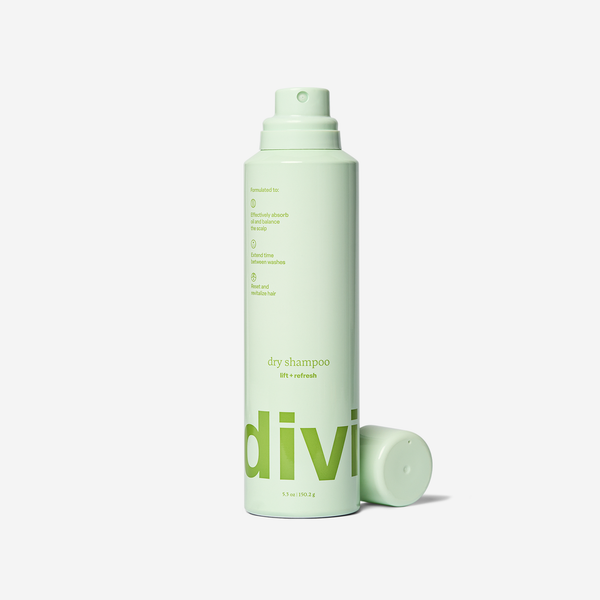

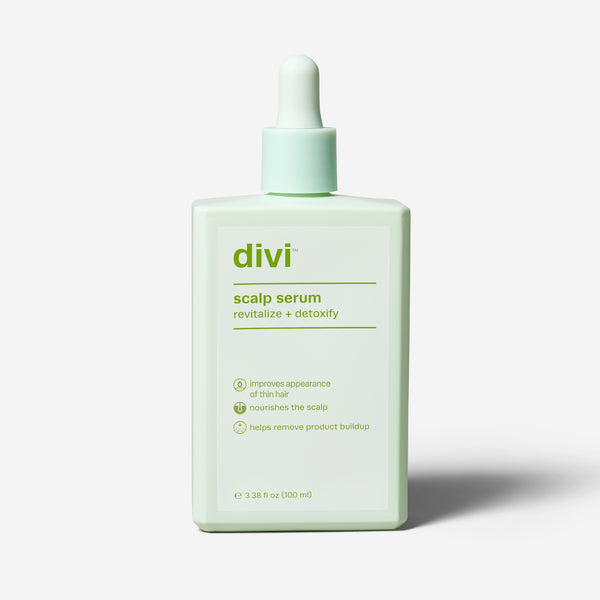

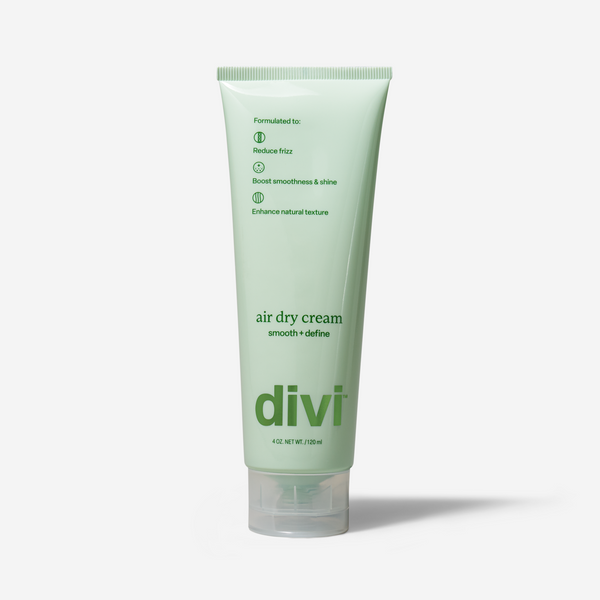
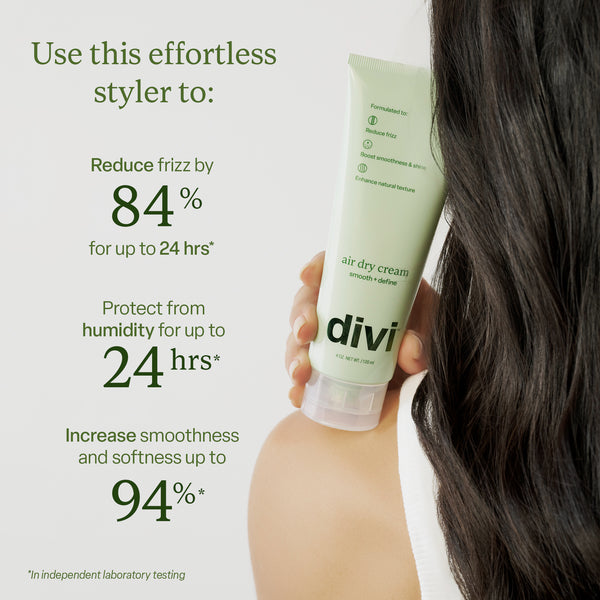
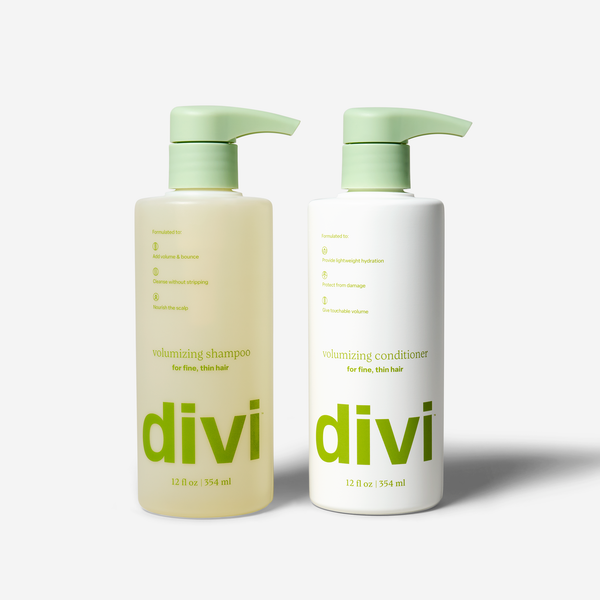

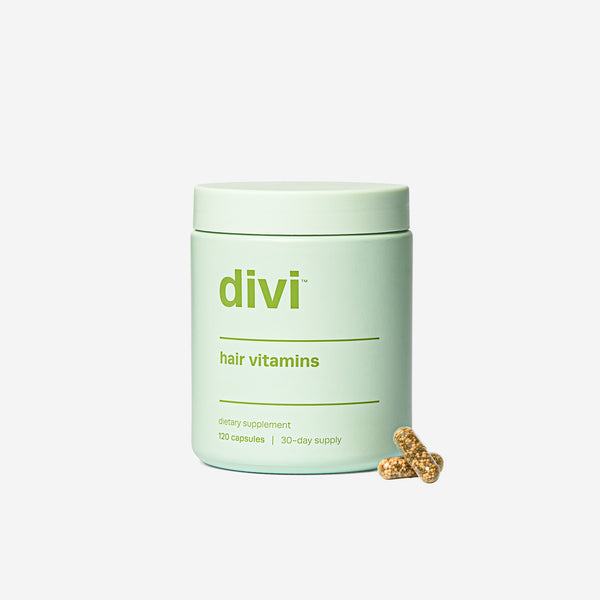
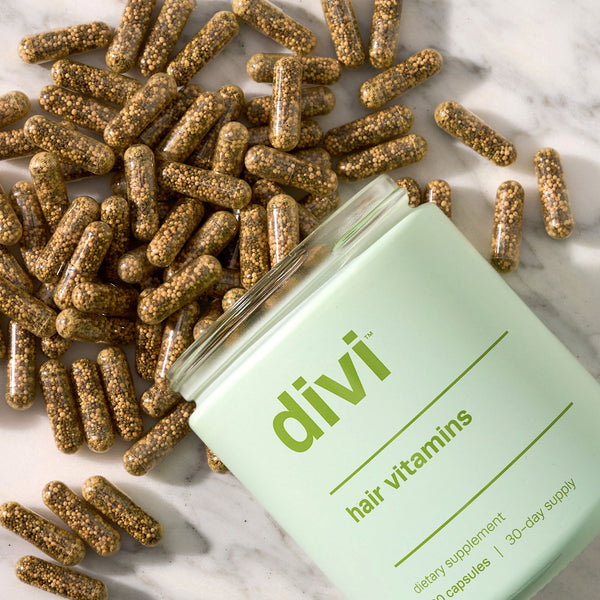
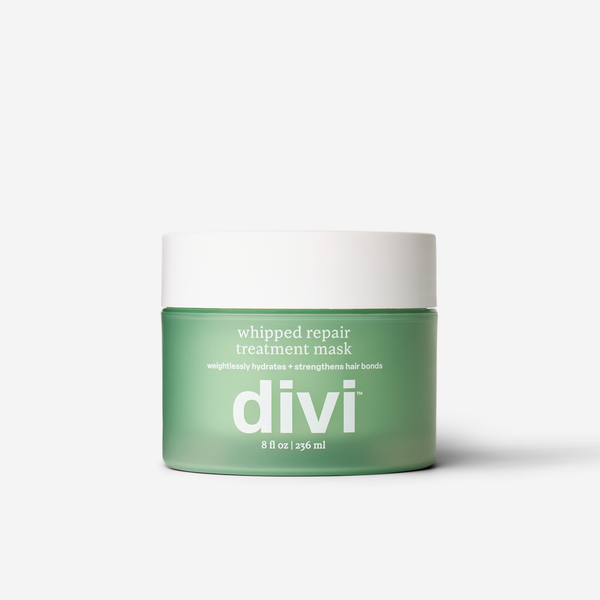
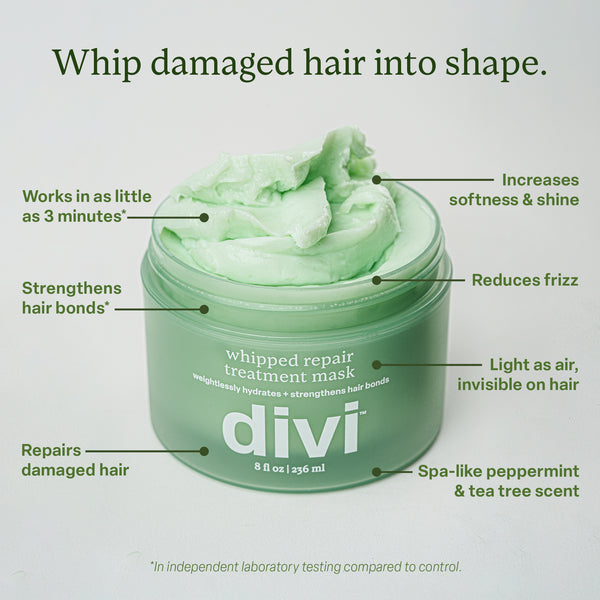
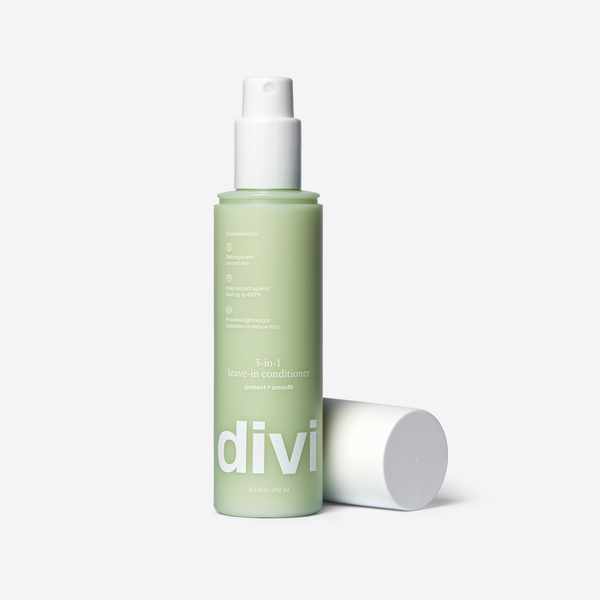



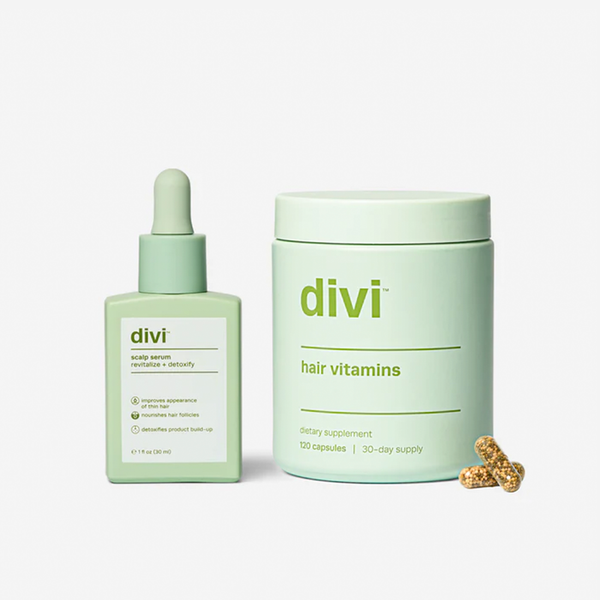
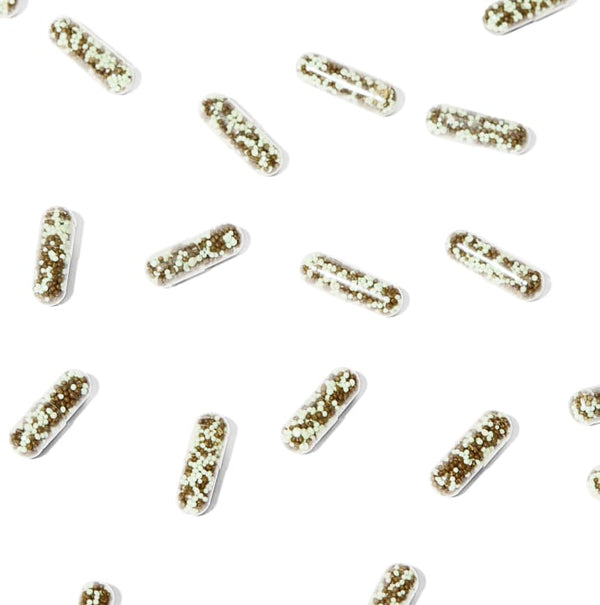
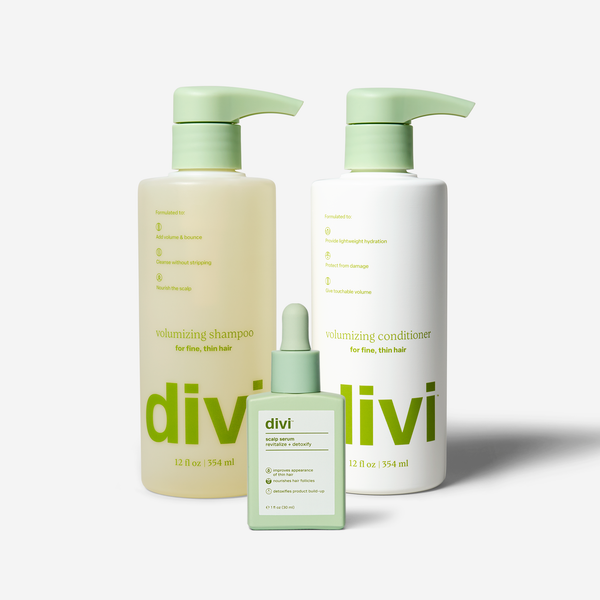












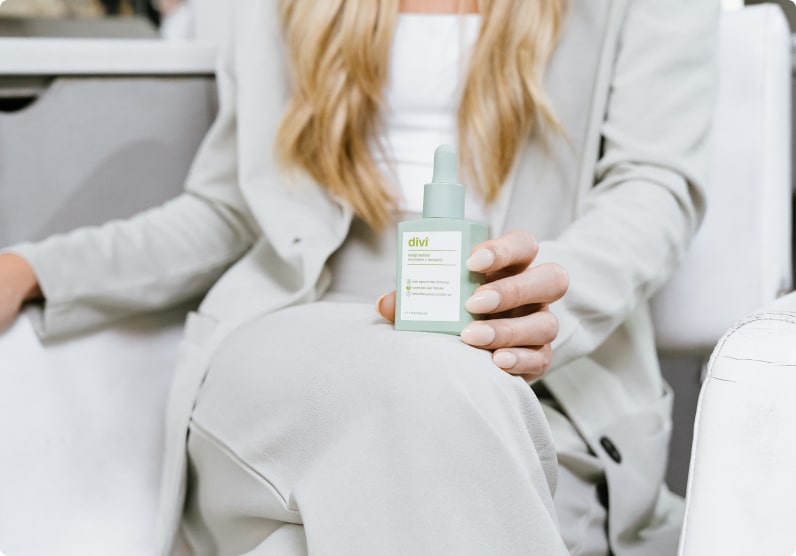






 30ml Scalp Serum
30ml Scalp Serum
 100ml Scalp Serum
100ml Scalp Serum
 Volumizing Shampoo
Volumizing Shampoo
 Hydrating Shampoo
Hydrating Shampoo
 Volumizing Conditioner
Volumizing Conditioner
 Hydrating Conditioner
Hydrating Conditioner
 3-in-1 Leave-In Conditioner
3-in-1 Leave-In Conditioner
 Best Sellers Bundle
Best Sellers Bundle
 Volumizing Starter Bundle
Volumizing Starter Bundle
 Hydrating Starter Bundle
Hydrating Starter Bundle
 The Healthy Hair Bundle
The Healthy Hair Bundle
 Hair Vitamins Trio
Hair Vitamins Trio
 Dry Shampoo
Dry Shampoo
 Hair Vitamins
Hair Vitamins
 Volumizing Shampoo & Conditioner
Volumizing Shampoo & Conditioner
 Travel-Sized Volume Duo
Travel-Sized Volume Duo
 Hydrating Shampoo & Conditioner
Hydrating Shampoo & Conditioner
 Travel-Sized Hydrating Duo
Travel-Sized Hydrating Duo
 Travel-Sized Dry Shampoo
Travel-Sized Dry Shampoo
 Travel-Sized Dry Shampoo Trio
Travel-Sized Dry Shampoo Trio
